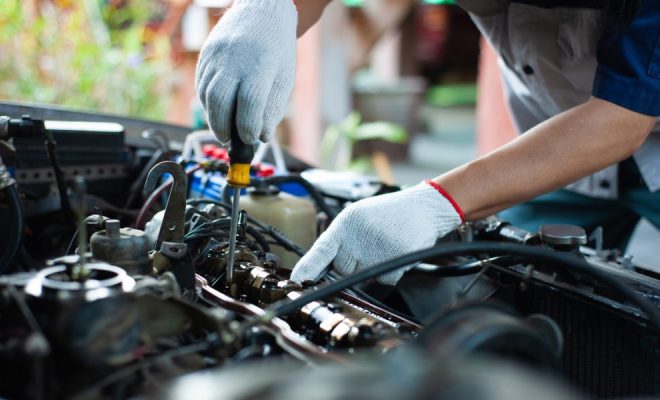Achieving Operational Excellence: Strategies to Enhance Industrial Performance

In today’s competitive industrial landscape, operational excellence is paramount for achieving superior performance and sustaining long-term success. It involves optimizing processes, leveraging advanced technologies, and maintaining equipment to enhance productivity and efficiency. This article explores key strategies to achieve operational excellence, with a focus on two critical components: industrial machinery tyres and heat exchangers.
1. Embracing a Culture of Continuous Improvement
Operational excellence starts with fostering a culture of continuous improvement. Organizations must adopt methodologies such as Lean Manufacturing and Six Sigma to identify and eliminate inefficiencies. By encouraging employees to actively participate in problem-solving and innovation, companies can create an environment where every aspect of the operation is constantly evaluated and refined.
2. Leveraging Data and Technology
The integration of advanced technologies and data analytics is crucial for optimizing industrial performance. Implementing smart sensors, IoT devices, and real-time monitoring systems allows businesses to gather valuable data on machine performance, process efficiency, and overall operational health. Analyzing this data can lead to actionable insights, enabling proactive maintenance, reducing downtime, and enhancing decision-making processes.
3. Industrial Machinery Tyres: Enhancing Equipment Performance
Industrial machinery tyres play a vital role in the operational efficiency of heavy-duty equipment. These tyres are designed to withstand harsh conditions and heavy loads, making them integral to the smooth functioning of machinery. Proper selection, maintenance, and replacement of industrial tyres can significantly impact performance and safety.
Selection and Maintenance
Choosing the right type of tyre for specific machinery is essential. Factors such as load capacity, traction, and durability must be considered to ensure optimal performance. Regular maintenance, including inspection and proper inflation, helps prevent premature wear and tear, reducing the risk of equipment failure.
Replacement Strategies
Timely replacement of worn-out tyres is crucial for maintaining operational efficiency. Monitoring tyre condition through visual inspections and performance data helps identify when replacement is necessary. By adhering to a scheduled replacement strategy, companies can avoid costly downtime and ensure that machinery operates at peak performance.
4. Heat Exchangers: Optimizing Thermal Efficiency
Heat exchangers are critical components in many industrial processes, facilitating the transfer of heat between fluids. Their efficiency directly impacts energy consumption, cost, and overall system performance. Ensuring the optimal functioning of heat exchangers is essential for achieving operational excellence.
Regular Maintenance and Cleaning
Routine maintenance and cleaning of heat exchangers are vital for maintaining thermal efficiency. Fouling and scaling can significantly reduce heat transfer efficiency and increase energy consumption. Implementing a regular maintenance schedule, including cleaning and inspection, helps ensure that heat exchangers operate effectively and efficiently.
Upgrading and Replacement
In some cases, upgrading or replacing outdated heat exchangers may be necessary to improve performance. Advances in technology offer more efficient and reliable heat exchangers that can enhance energy efficiency and reduce operational costs. Evaluating the performance of existing heat exchangers and considering upgrades when necessary can lead to significant improvements in overall industrial performance.

5. Training and Development
Investing in employee training and development is crucial for achieving operational excellence. Skilled and knowledgeable employees are better equipped to handle complex tasks, operate machinery efficiently, and contribute to process improvements. Providing ongoing training opportunities ensures that employees stay updated with the latest industry practices and technologies.
6. Implementing Robust Quality Control Measures
Quality control is essential for maintaining high standards and ensuring consistent performance. Implementing rigorous quality control measures at every stage of production helps identify and address potential issues before they impact the final product. This approach not only enhances product quality but also contributes to overall operational efficiency.
7. Enhancing Supply Chain Management
Effective supply chain management is key to operational excellence. Streamlining processes, improving communication with suppliers, and optimizing inventory levels help ensure that materials and components are available when needed. Efficient supply chain management reduces delays, minimizes costs, and enhances overall operational performance.
8. Fostering Collaboration and Communication
Collaboration and communication across departments and teams are essential for achieving operational excellence. Ensuring that all stakeholders are aligned with organizational goals and strategies promotes a cohesive approach to problem-solving and decision-making. Regular meetings, clear communication channels, and collaborative tools can facilitate better coordination and enhance overall performance.
Conclusion
Achieving operational excellence requires a multifaceted approach that encompasses continuous improvement, technological integration, and effective management of critical components such as industrial machinery tyres and heat exchangers. By embracing these strategies and focusing on key areas of improvement, organizations can enhance their industrial performance, reduce costs, and achieve long-term success. Investing in these practices not only drives operational efficiency but also positions companies to thrive in a competitive industrial environment.







